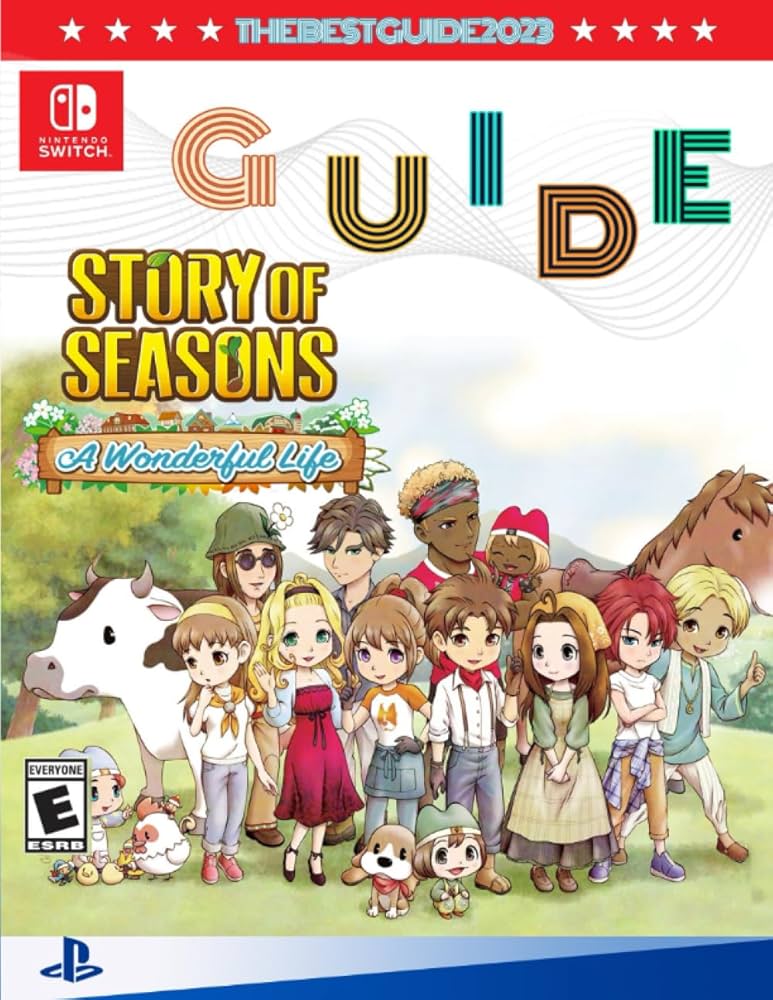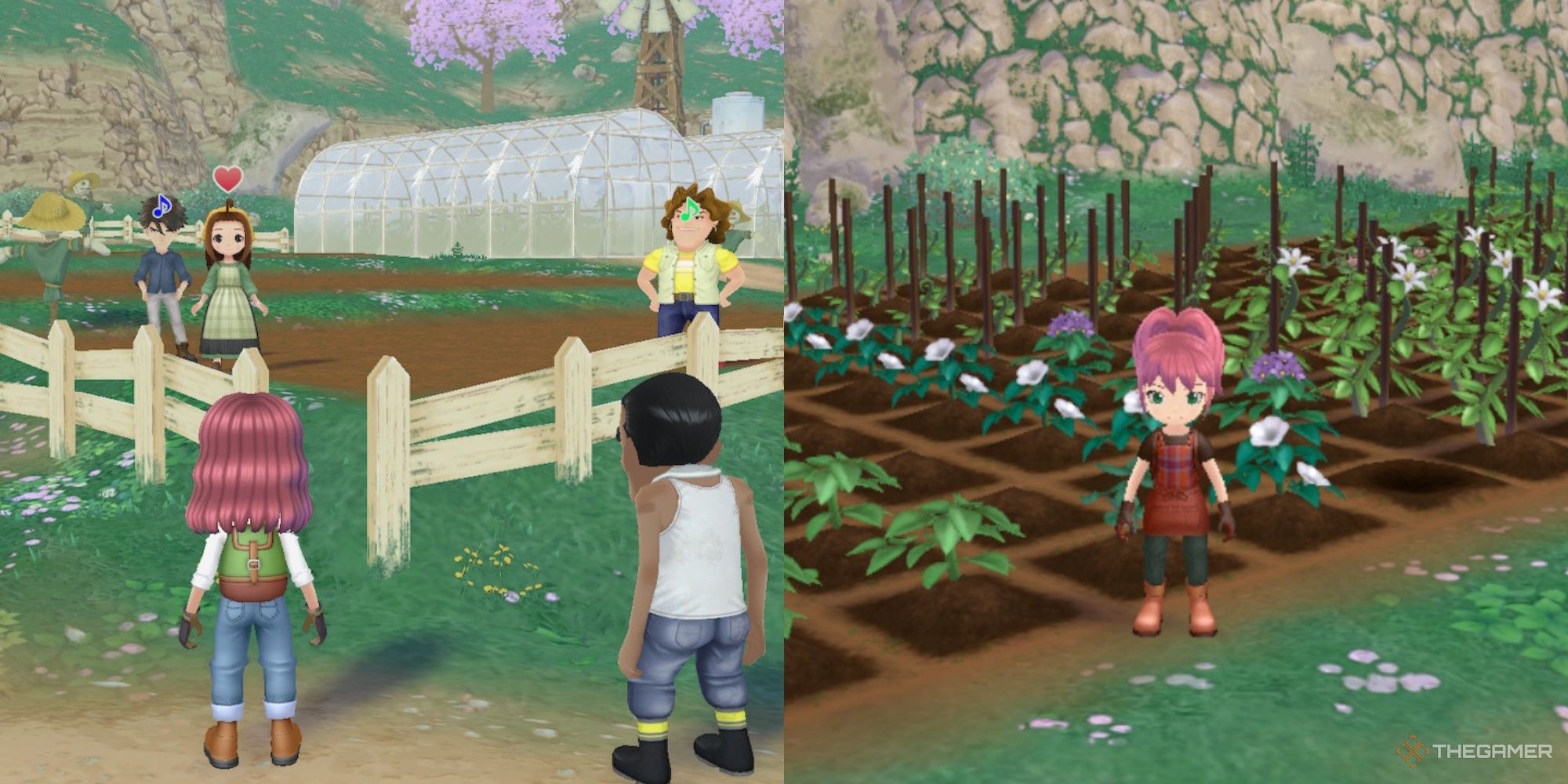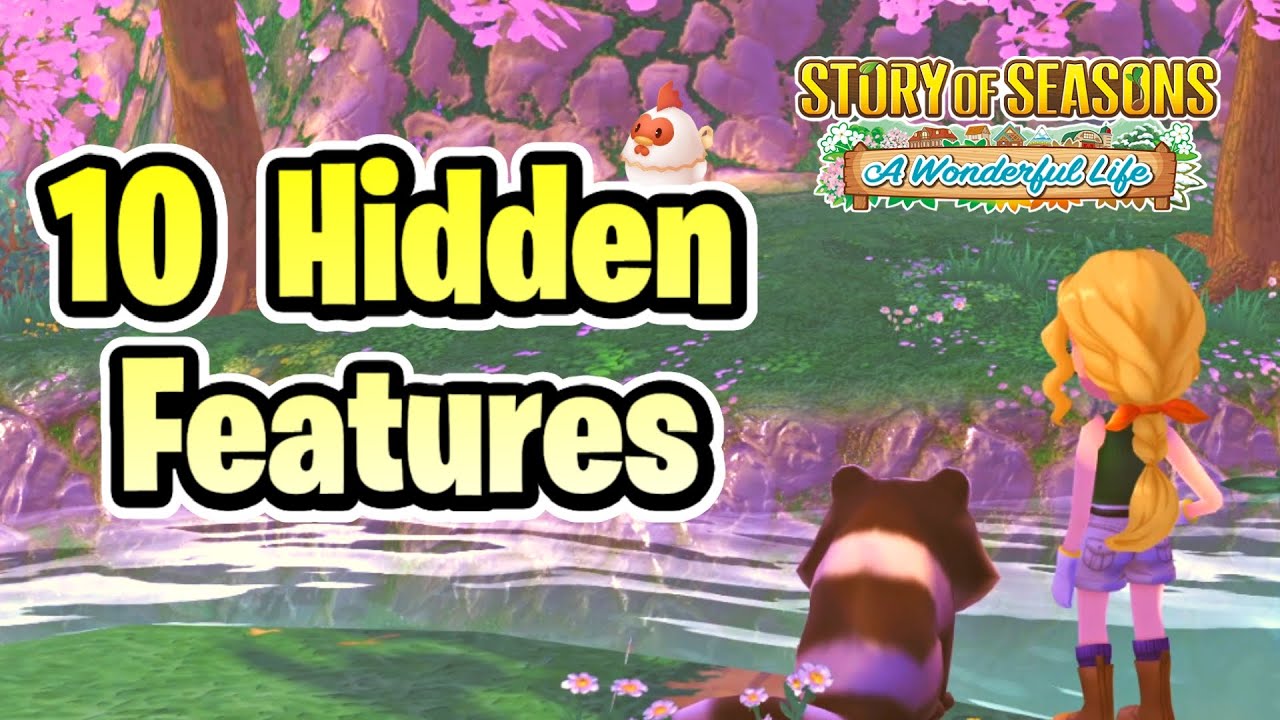Alright, so I’ve been spending a good chunk of time lately digging into Story of Seasons: A Wonderful Life, the remake. Thought I’d share what I’ve been up to and what I figured out along the way, just my own experience playing through it.

Getting Started – The First Few Days
When I first landed in Forgotten Valley, man, that farm was rough. First thing I did, grabbed those basic tools Takakura gives you – the hoe, watering can, sickle. You gotta start somewhere, right? I immediately went to clear a small patch of land near the farmhouse. Didn’t go crazy, just enough for maybe a 3×3 plot. Planted those free Turnip seeds they give you. Watering every day, that was the main chore. Honestly, just getting into that rhythm was key.
I also started wandering around, picking up wild plants. Flowers, herbs, whatever I could find. Easy money early on, just chuck ’em in the shipping bin. And talking to people! Didn’t go out of my way too much, but if I saw someone, I’d say hi. Gotta build those relationships slowly.
Making Some Cash Early On
Those first few seasons are tight on money. Here’s what worked for me:
- Foraging: Like I said, picking up wild stuff every day. It adds up. Check the woods, the path to Vesta’s farm, everywhere.
- Fishing: Got the fishing rod from Van when he showed up. Found a decent spot down by the river, near the waterfall. Spent evenings there sometimes. Fish sell for okay money, better than some herbs.
- Basic Crops: Stuck to Turnips and Potatoes initially. They grow fast. Water ’em twice a day if you can, seems to speed things up a bit, or at least I felt like it did. Sell everything you harvest.
Didn’t bother with expensive seeds right away. Just focused on getting a steady, small income stream going.
Dealing with Animals
Getting that first cow felt like a big step. Takakura gives you one for free, which is great. Milking took some getting used to, just interacting with the cow at the right time. Remember to feed them and brush them daily. Happy animals give better stuff. I bought some fodder early on, but quickly planted grass so I wouldn’t have to keep buying it. Saves a lot of money.

Later, I saved up for chickens. They’re cheap and eggs are consistent daily income. Just gotta remember to feed them too. Eventually got a sheep. Shearing is less frequent than milking, but the wool sells well. Animal care becomes a big part of the daily routine.
Making Friends and Finding Someone
Okay, the social part. I made an effort to talk to villagers I bumped into. Giving gifts helps, but honestly, just talking seemed to do the trick slowly. Found out what certain people liked by trial and error or listening to gossip. I wasn’t super aggressive about marriage early on, just kind of focused on the farm. Eventually, I started giving more gifts to one person consistently. It’s a slow burn in this game, don’t expect things to happen overnight.
Diving Deeper into Farming
Once I had a bit more cash, I started experimenting. Vesta sells different seeds. I tried planting a variety each season. Some crops are definitely worth more than others. Watermelons in summer seemed like a good bet for me. Bananas, once I got the tree seeds from Vesta after befriending her, were amazing long-term income, but took ages to grow.
Then there’s the hybrid crops thing with Tartan later in the game. That’s a whole different level. I started mixing seeds just to see what happened. Got some weird stuff, some valuable stuff. It’s fun to experiment but takes patience. Also, using fertilizer helps get better quality crops, which sell for more. Didn’t bother much early on, but later it made a difference.
Tools Make Life Easier
Seriously, save up to upgrade your tools at the forge in town. Started with the watering can. Being able to water more squares at once is a lifesaver, saves so much time and stamina. Then the hoe, sickle, all of them. The better tools make farming way less tedious. It’s a grind to get the money, especially for the gold tools, but totally worth it in my opinion.

Things I Learned Overall
Stamina is key. Don’t work your character until they pass out. Eat something! Cook simple meals once you get the kitchen upgrade. Even eating wild herbs helps a bit in a pinch. Keep an eye on that energy level.
Time flies. Especially when you’re inside buildings or talking to people, time stops. But outside, it moves fast. Plan your day a bit. I usually did animal chores first, then watering, then maybe foraging or fishing or talking to folks.
Don’t try to do everything at once. This game is slow. It spans decades. Focus on one or two goals at a time. Get the farm stable, then maybe focus on marriage, then maybe upgrading tools or getting all the animals. Trying to max everything immediately is just stressful and not really how the game feels like it’s meant to be played.
So yeah, that’s been my journey so far. Lots of trial and error, lots of just figuring things out day by day. It’s a chill game mostly, just gotta get into the flow of it.
